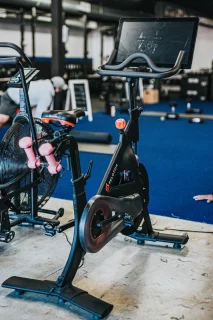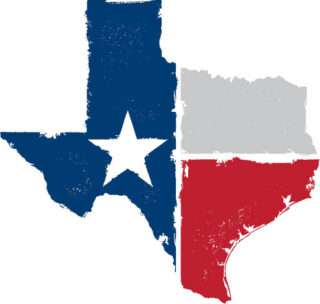
The District of Massachusetts recently held that garden leave payments, whereby a former employee subject to a restrictive covenant is paid by the former employer for the duration of the restrictive period, do not constitute “wages” under the Massachusetts Wage Act.Continue Reading Federal Court Determines that Garden Leave Payments Under Massachusetts Non-Compete Law Are Not Wages, Limiting Former Employees’ Leverage Under Wage Act
 In June 2022, a federal judge sitting in the Southern District of New York issued an order denying defendants Lionbridge Technologies, Inc. (“Lionbridge”) and its parent company HIG Middle Market, LLC (“HIG”) attorneys’ fees and costs related to their assertion that plaintiff Transperfect Global, LLC (“Transperfect”) brought a misappropriation of trade secrets claim under the Defend Trade Secrets Act (“DTSA”) in bad faith. The 2019 lawsuit was filed roughly 15 months after completion of a bidding war for the sale of Transperfect in a Delaware court-supervised auction. One of the participants in the auction was HIG, which had acquired Lionbridge—a competitor of Transperfect—in February 2017. In its suit, Transperfect alleged that HIG engaged in “fake bidding” during the auction so that it could access trade secrets in the form of confidential pricing data and customer lists and improperly share them with Lionbridge to poach two of Transperfect’s biggest clients.
In June 2022, a federal judge sitting in the Southern District of New York issued an order denying defendants Lionbridge Technologies, Inc. (“Lionbridge”) and its parent company HIG Middle Market, LLC (“HIG”) attorneys’ fees and costs related to their assertion that plaintiff Transperfect Global, LLC (“Transperfect”) brought a misappropriation of trade secrets claim under the Defend Trade Secrets Act (“DTSA”) in bad faith. The 2019 lawsuit was filed roughly 15 months after completion of a bidding war for the sale of Transperfect in a Delaware court-supervised auction. One of the participants in the auction was HIG, which had acquired Lionbridge—a competitor of Transperfect—in February 2017. In its suit, Transperfect alleged that HIG engaged in “fake bidding” during the auction so that it could access trade secrets in the form of confidential pricing data and customer lists and improperly share them with Lionbridge to poach two of Transperfect’s biggest clients. A Superior Court in Massachusetts has allowed an aesthetician’s lawsuit to proceed against her former employer after it sought to enforce her allegedly void restrictive covenant.
A Superior Court in Massachusetts has allowed an aesthetician’s lawsuit to proceed against her former employer after it sought to enforce her allegedly void restrictive covenant. After a four day bench trial on August 10, 2021, a Houston federal judge ruled that the conceptual designs an oil and gas manufacturing company disclosed to its erstwhile collaborator under an NDA were not eligible for trade secret protection because they were neither secret nor misappropriated due predominantly to disclosure in a prior public patent. The ruling underscores the necessity that trade secrets are—in fact—kept actually secret. Moreover, any prior patent of the party seeking to protect its trade secrets should be scrutinized for similarity with the technology or information allegedly comprising a trade secret.
After a four day bench trial on August 10, 2021, a Houston federal judge ruled that the conceptual designs an oil and gas manufacturing company disclosed to its erstwhile collaborator under an NDA were not eligible for trade secret protection because they were neither secret nor misappropriated due predominantly to disclosure in a prior public patent. The ruling underscores the necessity that trade secrets are—in fact—kept actually secret. Moreover, any prior patent of the party seeking to protect its trade secrets should be scrutinized for similarity with the technology or information allegedly comprising a trade secret. Peloton has come out on top of the litigation leaderboard yet again. As we previously blogged about
Peloton has come out on top of the litigation leaderboard yet again. As we previously blogged about 
 The
The  On Tuesday September 22 at 2-3 p.m. Eastern, Dawn Mertineit will participate in a roundtable on “Forensic Analysis of Electronic Devices for Litigation” for the ABA’s Litigation Section. This program will discuss the importance of forensic analysis of electronic devices, both pre-litigation and during litigation. Topics covered will include scenarios in which forensic analysis will be necessary or helpful, types
On Tuesday September 22 at 2-3 p.m. Eastern, Dawn Mertineit will participate in a roundtable on “Forensic Analysis of Electronic Devices for Litigation” for the ABA’s Litigation Section. This program will discuss the importance of forensic analysis of electronic devices, both pre-litigation and during litigation. Topics covered will include scenarios in which forensic analysis will be necessary or helpful, types Real estate startup HouseCanary made headlines when it secured a $700 million judgment against Title Source, Inc., now known as Amrock, in a trade secrets misappropriation case. In short, HouseCanary claimed that Amrock misappropriated its trade secrets to develop an app to compete with the very product Amrock hired HouseCanary to create—a product HouseCanary never delivered.
Real estate startup HouseCanary made headlines when it secured a $700 million judgment against Title Source, Inc., now known as Amrock, in a trade secrets misappropriation case. In short, HouseCanary claimed that Amrock misappropriated its trade secrets to develop an app to compete with the very product Amrock hired HouseCanary to create—a product HouseCanary never delivered. The much-ballyhooed legal battle over trade secrets concerning self-driving automobile technology involving Uber took its latest (and perhaps final) turn last week, when engineer Anthony Levandowski was sentenced to 18 months in prison and ordered to pay over $700,000 in restitution.
The much-ballyhooed legal battle over trade secrets concerning self-driving automobile technology involving Uber took its latest (and perhaps final) turn last week, when engineer Anthony Levandowski was sentenced to 18 months in prison and ordered to pay over $700,000 in restitution.